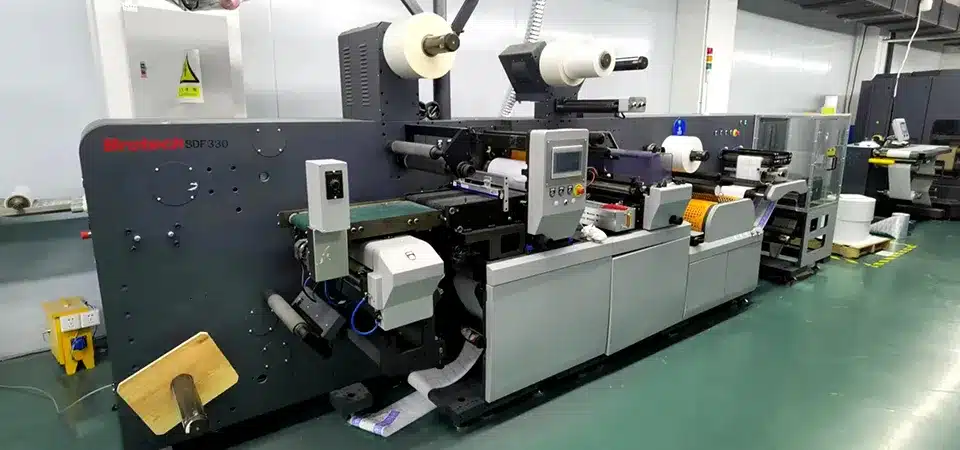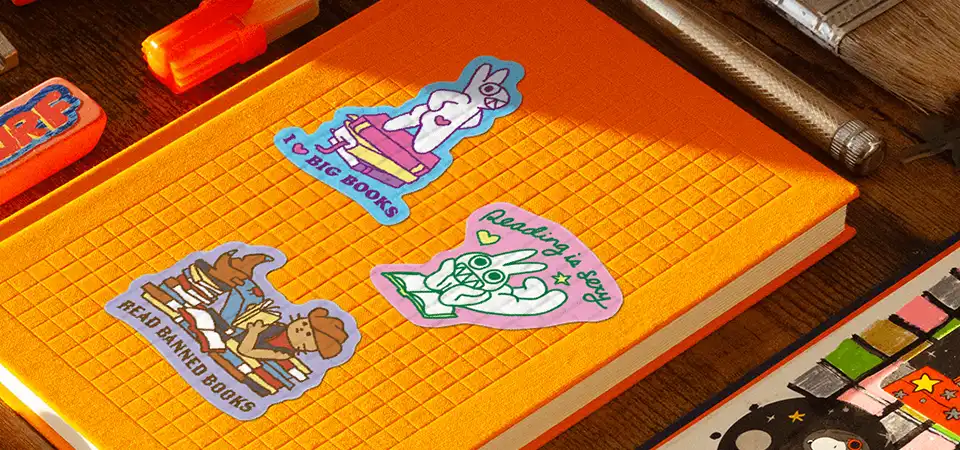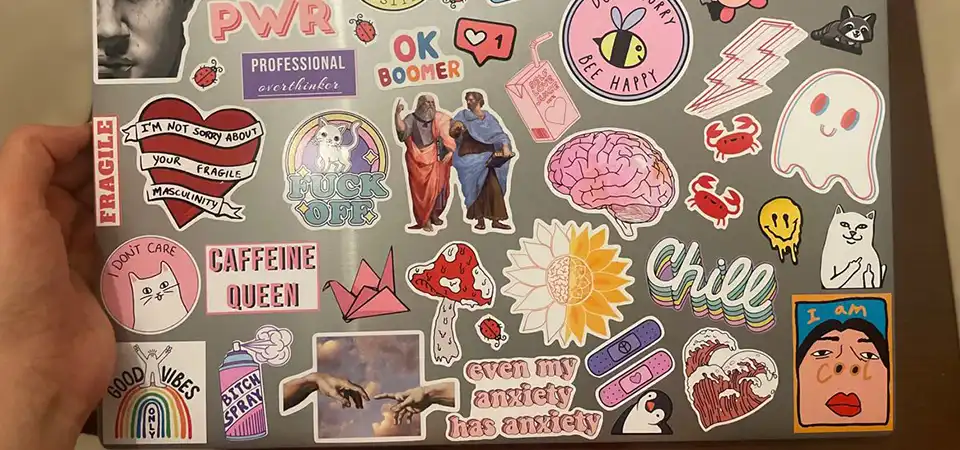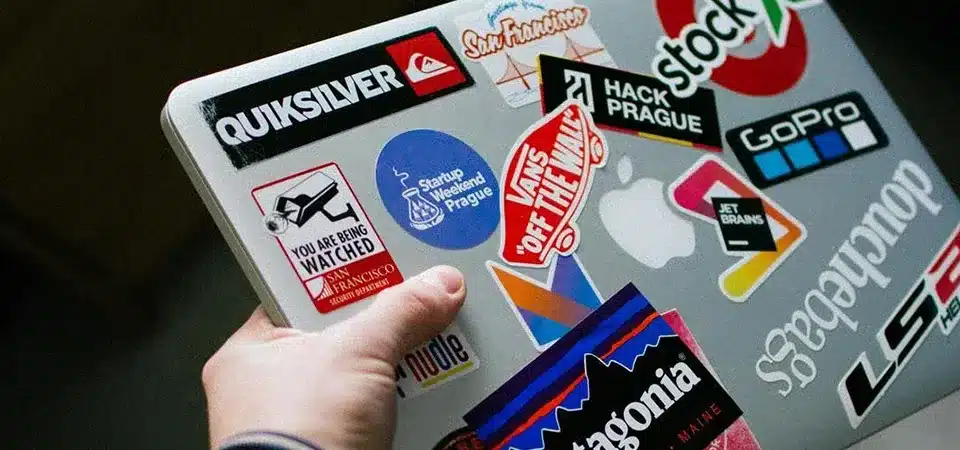Car stickers are a popular way to personalize vehicles. Whether it’s for decoration, business branding, promotional events, or motorsport applications, high-quality car decals must withstand a tough environment. If you've ever seen car stickers fading, peeling, or leaving sticky residue after removal, it's likely because the wrong type of vinyl was used.
Outdoor car use demands much higher standards for durability and adhesion than indoor or short-term applications. This guide will help you understand the different types of vinyl used in car stickers and which one is best suited for long-lasting outdoor performance.
Why Do Car Stickers Require Special Materials?
The environment that car decals endure is much harsher than that of typical sticker applications:
- Sun Exposure: UV rays can cause fading, yellowing, or cracking over time.
- Temperature Fluctuations: From freezing winters to hot summers, the surface of a car can range between -20°C to over 70°C.
- Wind Resistance: At high speeds, decals must resist air pressure and drag.
- Frequent Washing: Pressure washers and car shampoos can weaken edges.
- Pollution and Rain: Acid rain, dust, and bird droppings can corrode poor-quality materials.
Because of these conditions, car decals must be:
- Highly adhesive yet removable
- UV and weather-resistant
- Flexible and durable under temperature changes
- Safe for paint, with clean removal

Basic Structure of a Car Decal
A quality sticker consists of three main layers:
- Face Film (Vinyl layer) – defines the appearance, texture, and weather resistance.
- Adhesive Layer – affects bonding strength and removability.
- Release Liner – protects the adhesive before application.
The face film (vinyl) is the most important element when considering outdoor durability.
Types of Vinyl for Car Stickers
| Type | Manufacturing Process | Flexibility | Lifespan | Ideal Use |
| Cast Vinyl | Liquid-cast | Excellent | 5–10 years | Full wraps, long-term outdoor use |
| Calendered Vinyl | Rolled & compressed | Moderate | 1–3 years | DIY, temporary or flat surfaces |
| PET Film (Polyester) | Hard plastic-based | Poor | < 1 year | Not recommended for car surfaces |
Cast Vinyl – The Best Choice for Long-Term Use
Best for: Vehicle wraps, commercial decals, and complex curves
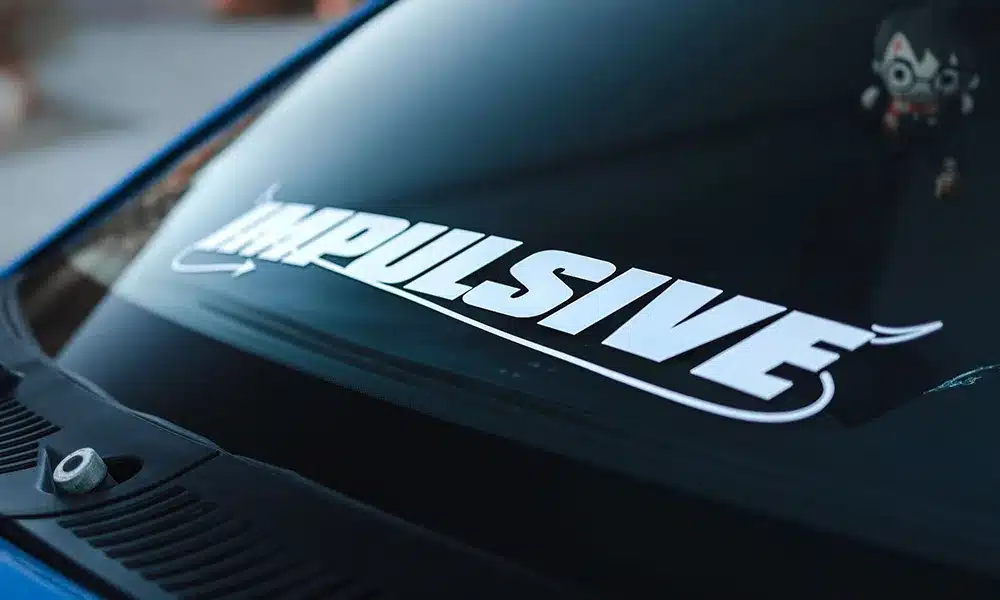
Features:
- Made by casting liquid PVC, resulting in a dimensionally stable and thin film (50–70 microns).
- Superior flexibility, conforms to curves and contours easily.
- Excellent UV resistance, weatherproof, and fade-resistant.
- Easy to remove without damaging paint.
Common Brands:
- 3M™ 2080 Series
- Avery Dennison Supreme Wrapping Film
- Oracal 970RA Series
Drawback:
Higher cost, but offers the best long-term performance.
Calendered Vinyl – A Budget-Friendly Option
Best for: Short-term graphics, event branding, flat areas

Features:
- Made by rolling and stretching PVC sheets.
- Affordable, with a wide range of colors and finishes.
- Suitable for large-scale or low-budget projects.
Limitations:
- Less conformable, not ideal for curved or uneven surfaces.
- Shrinks over time, may peel at the edges.
- Fades or cracks within 1–2 years in outdoor conditions.
Common Brands:
- Avery MPI 3000
- Oracal 651
- 3M™ IJ40
PET Film – Not Recommended for Cars
This type of film is rigid and cheap, often used in low-cost online decals.
Disadvantages:
- Hard and brittle; not suitable for curved surfaces.
- Leaves heavy residue after removal.
- Prone to cracking under sun exposure.
❌ Avoid using PET or other polyester-based stickers on any car surface.

How to Tell What Type of Vinyl You're Using
Even if you're not a vinyl expert, you can still evaluate the quality of a sticker:
| Method | What to Look For |
| Check specs | Reputable suppliers mention cast/calendered types or brand names |
| Feel it | Cast vinyl is thin and flexible; calendered feels thicker/stiffer |
| Stretch test | Cast stretches smoothly without whitening; calendered cracks |
| Odor | Cheap vinyl may have strong PVC or chemical smells |
| Protective film | High-end vinyl often comes with a clear protective layer |
Adhesive Types for Car Stickers
The adhesive layer determines how well a sticker sticks and how easily it can be removed:
| Adhesive Type | Features | Recommended Use |
| Permanent | Strong bond, may leave residue | Long-term commercial use |
| Removable | Clean removal, no damage to paint | Temporary graphics or testing |
| Air-release | Micro-channels help eliminate bubbles | Large decals, DIY installation |
Installation Tips and Best Practices
To get the most out of your vinyl sticker:
- Clean the surface thoroughly – remove all dust, grease, and wax.
- Apply in proper temperature – 20–30°C is ideal.
- Use a squeegee and transfer film for even application.
- Avoid washing or exposing to rain for at least 24 hours after installation.
For large or complex graphics, consider professional installation.

Final Recommendation: Which Vinyl Should You Choose?
| Purpose | Recommended Material | Lifespan | Cost Level | Difficulty |
| Full car wrap | Cast Vinyl | 5–10 years | $$$$ | High |
| Long-term business graphics | Cast Vinyl | 3–5 years | $$$ | Moderate |
| DIY personal decals | Calendered Vinyl | 1–2 years | $$ | Easy |
| Short-term promotions | Calendered Vinyl | 6–12 months | $ | Easy |
✅ Always communicate your needs to the sticker supplier, including how long you expect the sticker to last, where it will be applied, and whether it needs to be easily removed.
FAQ
How long will the sticker last on a car?
- Cast vinyl: 5–10 years under normal conditions.
- Calendered vinyl: Usually fades or peels within 1–2 years.
Will it damage my car paint when removed?
No, as long as you use high-quality removable adhesive and don’t leave it on for too long.
Can I apply stickers on bumpers or curved areas?
Yes, but use cast vinyl only. Calendered vinyl won’t conform well and may lift.
Can I make cheaper vinyl last longer?
- Applying lamination (gloss or matte) adds protection.
- Avoid parking in direct sunlight and minimize car washes.
What designs are not suitable for outdoor car use?
- Very small or thin designs may peel or warp faster.
- For reflective or glow-in-the-dark effects, use specialty vinyl, not basic ones.


